Greetings Earthlings!
This week on the Soul Boom podcast, we’re talking about something HUGE—bigger than the latest bad headline you’re avoiding by reading this instead. It’s justice. World peace. Human dignity. And there’s nobody better to tackle these colossal topics than Dr. Payam Akhavan, a towering figure in international law and human rights.
Payam isn’t just a professor—he’s also a former UN prosecutor at The Hague, and a legal heavyweight who has argued cases before the International Criminal Court, the European Court of Human Rights, and the Supreme Courts of Canada and the United States. He has worked in some of the world’s most brutal conflict zones, fighting for justice where most people fear to tread. He’s advised governments, chaired the Global Conference on the Prevention of Genocide, and co-founded the Iran Human Rights Documentation Centre. His groundbreaking work has been featured in the New York Times, BBC World’s HardTalk, CBC’s Ideas, and Maclean’s. In short—if humanity has a shot at figuring out world peace, Payam’s a guy we should all be listening to.
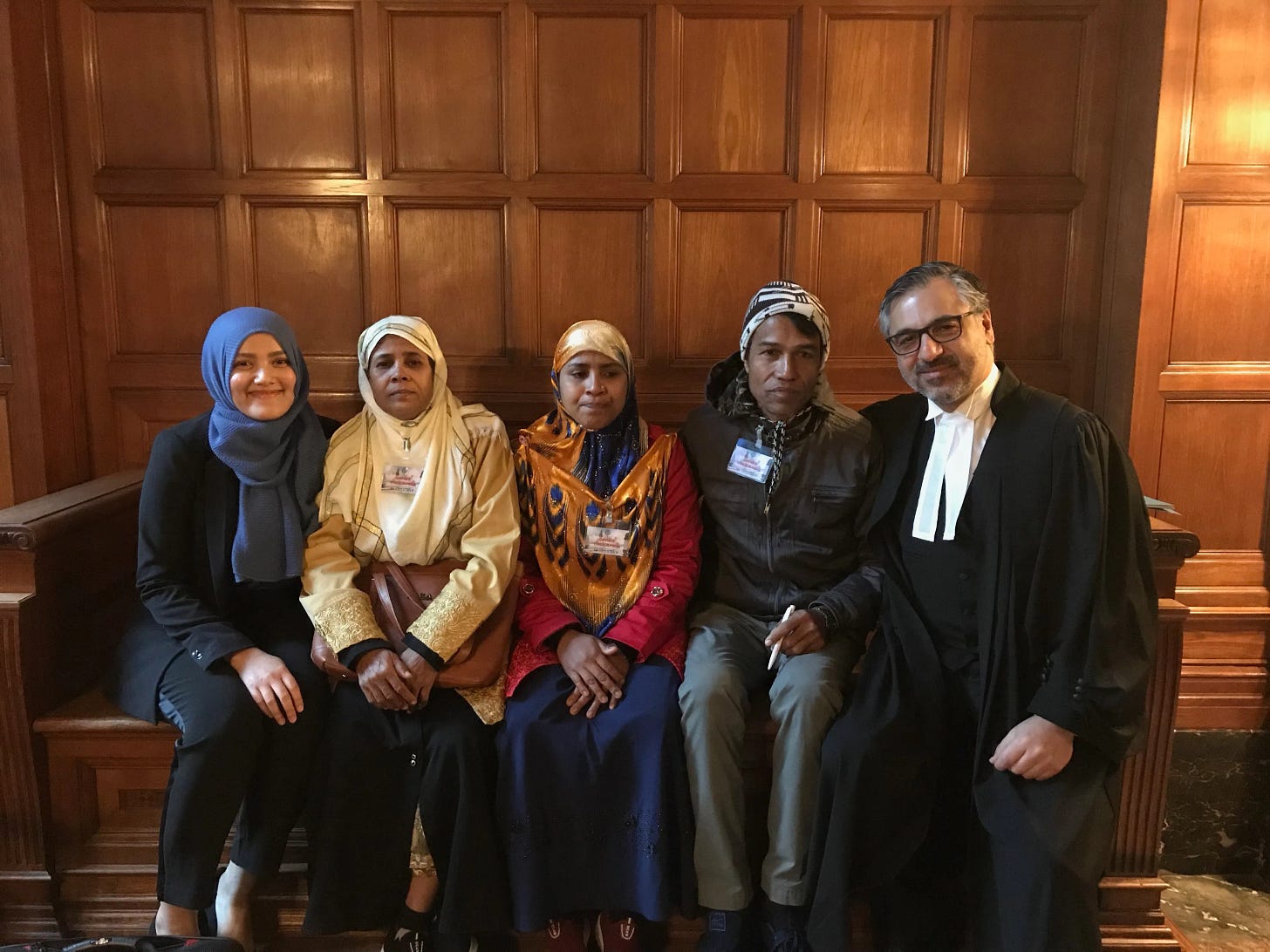
In this conversation, Rainn and Payam explore the deep connections between justice, spirituality, and the oneness of humanity—not as some vague, feel-good philosophy, but as an urgent reality we can’t afford to ignore. They discuss the persecution of the Bahá’ís in Iran, the rise of authoritarianism, the moral failures of global leadership, and the forces keeping us divided. But Payam isn’t just diagnosing the problem—he offers real solutions. He argues that world peace isn’t naïve idealism, but an inevitable stage in our evolution as a species—provided we stop clinging to outdated ways of thinking.
As a companion to this week’s episode, we’re sharing an excerpt from Payam’s book, In Search of a Better World, specifically from his chapter on The Oneness of Humankind. Because, let’s face it—if we’re going to survive, we need to start acting like we actually belong to one human family.
With hope, hugs, and a dash of righteous indignation,
The Soul Boom Team
The Oneness of Humankind
From In Search of A Better World: A Human Rights Odyssey
By Payam Akhavan
OF ONE ESSENCE
“All circuits are busy. Please try your call again.” On any other day, that would have been an annoying message, made worse by the cordial voice of that anonymous woman who taunts irritated callers around the world with a mocking tone of polite ridicule. One of the fundamental rites of passage in modern society is to suffer the on-hold hell of automated telephone systems; condescending recordings telling us that the next available customer service agent will be with us “shortly,” while for nearly an hour, we listen to a never-ending loop of Dolly Parton and Kenny Rogers singing “Islands in the Stream.” But on that day, instead of exasperation, the impersonal telephone rebuff gave rise to panic and desperation.
“All circuits are busy.” I listened to the recording repeatedly, as I obsessively dialed her number again and again. I was in utter disbelief at what had just happened. I was frantic to hear the voice of my wife and two-year-old son so that the nightmare of uncertainty would end. I just wanted to know that they were still alive. I thought of the joyous day he was born. His wondrous eyes were wide open, brimming with curiosity about the new world he had just entered. He had grown so quickly. He was now an adorable toddler, waddling around the house in pursuit of mischief, skillfully deploying his disarming smile with malice aforethought to undermine my fatherly authority. Shortly after I had kissed him goodbye that morning on my way to work, he had taken the train to Manhattan with his mother and grandparents. They were on their way to the World Trade Center, and now their whereabouts were unknown. The date was September 11, 2001, the dawn of a new millennium.
The horror of that day marked a turning point in history. Shocked by the scale of the terrorist attack, America declared a “War on Terror.” The narrative that emerged was a clash of civilizations between Islam and the West, of destroying foreign extremists before they destroyed us. But unlike the enemies from wars past, this one was everywhere, from the mountains of Afghanistan to the double-decker buses of London. With drone warfare and suicide bombing, surveillance and xenophobia, apocalyptic survivalism became the new norm. I had witnessed in war zones throughout the world the deceptive power of visceral fear, the immediate need for self-defence blinding us to the search for lasting solutions. Like someone addicted to an unhealthy lifestyle, the world found it easier to fixate on symptoms than to deal with root causes. The single indivisible body that we call humankind was ingesting poison long before the outbreak of 9/11. The toxic combination of divisive ideologies and cynical geopolitical calculations was the perfect breeding ground for the disease of violent extremism. Amidst the hysterical belligerence, the most important narrative — that of inextricable global interdependence — was all but lost. If we appreciate that the oneness of humankind is an inescapable reality rather than a naive ideal, then we will not be surprised that ignoring the suffering of others, let alone causing it, will always come back to haunt us. It’s called bad karma…
BIRTH OF A NEW WORLD
If simple ideas have far-reaching consequences, then that of humankind being a single race occupying a single home is surely the one with the most profound impact on our self-conception. As we stared back from the darkness of space at the blue celestial sphere that we call Earth, we could see for the first time the actual image of one planet with one people; and yet back on Earth we went about our business as usual, holding on to the anachronistic ideas that failed to grasp our fundamental oneness.
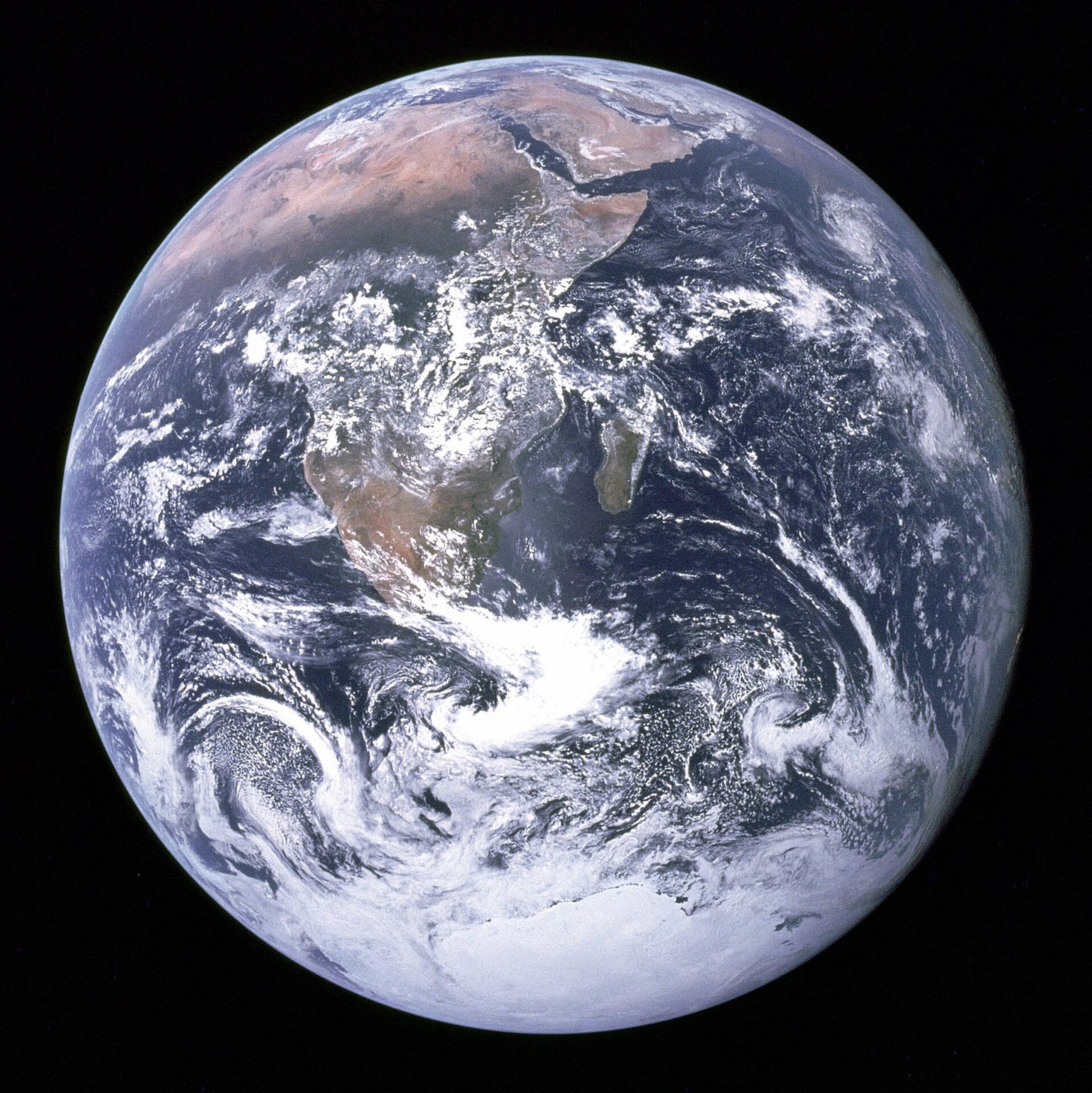
We live in an age of extremes. On the one hand, we witness the resurgence of divisive ideologies; the glorification of greed, hatred, and violence; the futile building of boundaries and walls; a delusional descent into the dark abyss of collective narcissism; the stubborn clinging to outworn shibboleths and obsolete doctrines. On the other hand, our destinies have become inextricably intertwined in our hyper-connected global society, our narrow identities surreptitiously converging into a greater, all-embracing sense of belonging. We are being infused with a wider loyalty, witnessing the rise of an unprecedented consciousness that we all belong to a single emerging world civilization, that our survival depends on acceptance of a transcendent ethos of human dignity for all.
One process, of destruction and disintegration, of an old world order manifestly at odds with the reality of our oneness, desperately holds on to the myth that the thin slice of humanity we define as “self” is at the centre of the universe, while those defined as “others” must naturally revolve around its orbit. The other process, of construction and integration, of a new world order consistent with the inescapable fact of our oneness, embraces, whether reluctantly or enthusiastically, the truth that we all revolve around the same sun, that we all depend on its light for our survival, that we all share a common home and common destiny. These twin processes, of destruction and construction, of disintegration and integration, occurring simultaneously, pulling us in opposite directions, stirring confusion and consternation among the masses, are leading inexorably to a world civilization the boundaries of which are the planet itself. For the first time in history, we are forced collectively to reimagine our identities through the inclusion, rather than exclusion, of others, to achieve the consummation of our social evolution as a single species. Those with messianic expectations were right: the world as we knew it for thousands of years has come to an abrupt end…
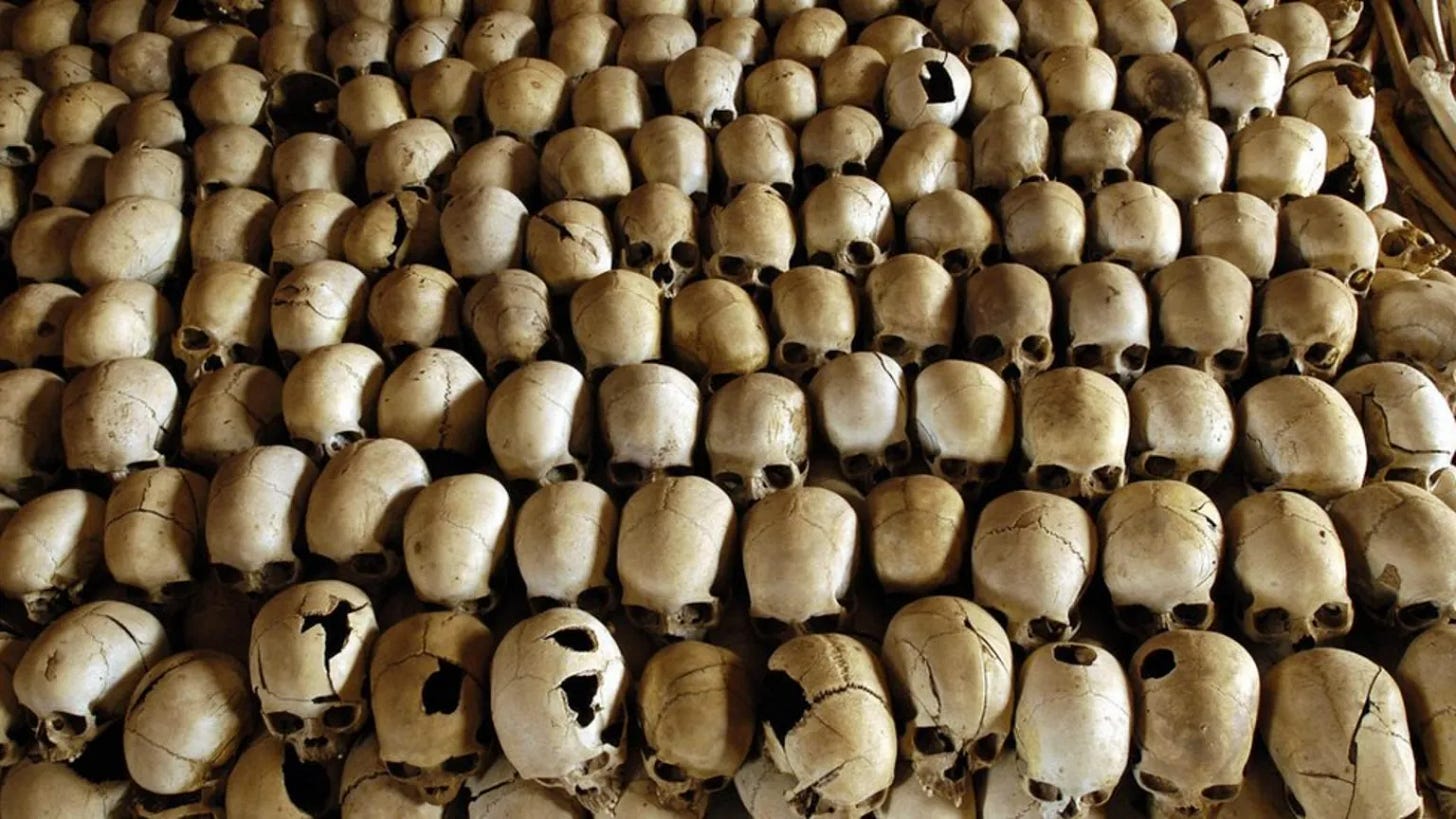
A SINGLE BODY
I thought back to my first tour of the UN building in New York. It was a more innocent time, when I was on a student internship, dazzled by the glamour of diplomacy and the bureaucracy working towards the betterment of humankind. Being of Iranian origin, I was proud to see the magnificent Persian carpet that decorates the portal of the hall where the General Assembly meets, the one place where all nations gather to solve the pressing problems of the planet. Painstakingly woven from thousands of tiny threads that combine to form enchanting patterns of vivid colours, the carpet itself conveyed the unified beauty of diversity. It was graced by a famous poem that we learned as children in Iran, the poignant verse of the thirteenth century Sufi mystic Saadi, from the fabled city of Shiraz. His words spoke to all those that entered the UN to deliberate in the name of world peace:
Human beings are members of a whole In creation of one essence and soul If one member is afflicted with pain Other members uneasy will remain If you have no sympathy for human pain The name of human you cannot retain.
As the towers were reduced to dust that day, I desperately grappled for an explanation, and I thought of that poem. I reflected on how prescient it was about the reality of our oneness, long before the age of globalization. Afghanistan was not a detached limb of humankind; it was part of the single body that inextricably connects us…
THE LIGHT OF DAWN
The unification of all peoples into a world commonwealth is not only possible; it is inevitable. It is the next stage in the evolution of humankind. The only question is whether we will achieve it by vision and volition, or after unimaginable calamities leave us with no other choice.
Thus far, our experiments in global governance have been reactions to catastrophes after the fact. The League of Nations emerged from the ashes of the First World War, and the United Nations from the devastation of the Second World War. How will the future world commonwealth that is necessary to secure peace emerge? Will it be because of a Third World War? Or an environmental disaster that will bring the planet to the brink of extinction? Or is it possible that the peoples of the world will arise with foresight and fortitude and bring an end to the self-defeating politics that have left a bleeding humankind stumbling from one nightmare to the next? At this crucial juncture in our collective history, nothing less than a radically new conception of world order will suffice; nothing less will avert the unconscionable catastrophes that our divisive habits will lead to sooner or later.
When I embraced my two-year-old again, I held him tight and kissed his forehead repeatedly. It had been a long and traumatizing day, but finally he had arrived home with his mother and grandparents. They had cheated death because the naughty boy had made a fuss getting dressed, and they had arrived late for the train that would have placed them at the World Trade Centre at the moment of impact. In fact, my son had a seeming habit of arriving late from the very beginning of his life. He was a bit too comfortable in his mother’s womb and simply didn’t want to come out. But after forty-two weeks of gestation, he was becoming too large to stay any longer, so labour had to be induced…It had been an exhausting ordeal for his mother, but once the nurse placed the baby in her arms, the joyous miracle of life made her forget the suffering she had endured.
Today, we feel the birth pangs of a new world, humankind struggling to emerge from a familiar space of confined consciousness that it has clearly outgrown, still surrounded by darkness, unaware that just beyond, astonishing possibilities await those who open their eyes to the magnificent light of dawn.
By Payam Akhavan, excerpted from In Search of A Better World: A Human Rights Odyssey.
Payam Akhavan is a human rights lawyer, professor, and former UN prosecutor who has spent his career seeking justice for those caught in the worst horrors of humanity. From prosecuting war crimes at The Hague to defending victims before the world’s highest courts, he has been at the forefront of accountability for genocide and human rights abuses. A professor and human rights chair at Massey College, University of Toronto, he has also taught at Oxford, Yale, and McGill, bringing both scholarly depth and lived experience to his work. His advocacy has taken him to conflict zones across the globe—Bosnia, Rwanda, Cambodia, and beyond—where he has witnessed both the depths of human cruelty and the resilience of the human spirit. His book Reducing Genocide to Law challenges legal complacency in the face of atrocity, and his work with the Iran Human Rights Documentation Centre continues to shine a light on repression. Payam’s life has been shaped by the struggle between oppression and hope—one that fuels his vision for a world where justice is not just an ideal but a lived reality.
So, what do you think? In a world that can feel so divided, what’s one step each of us can take today to recognize our shared humanity and build a more just world community? We’d love to hear your thoughts—share them in the comments below!


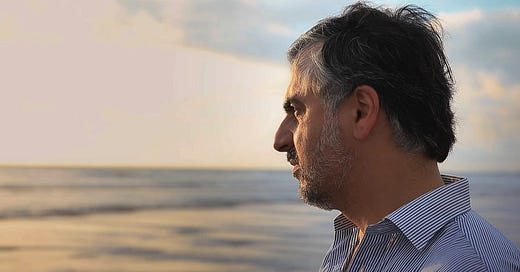



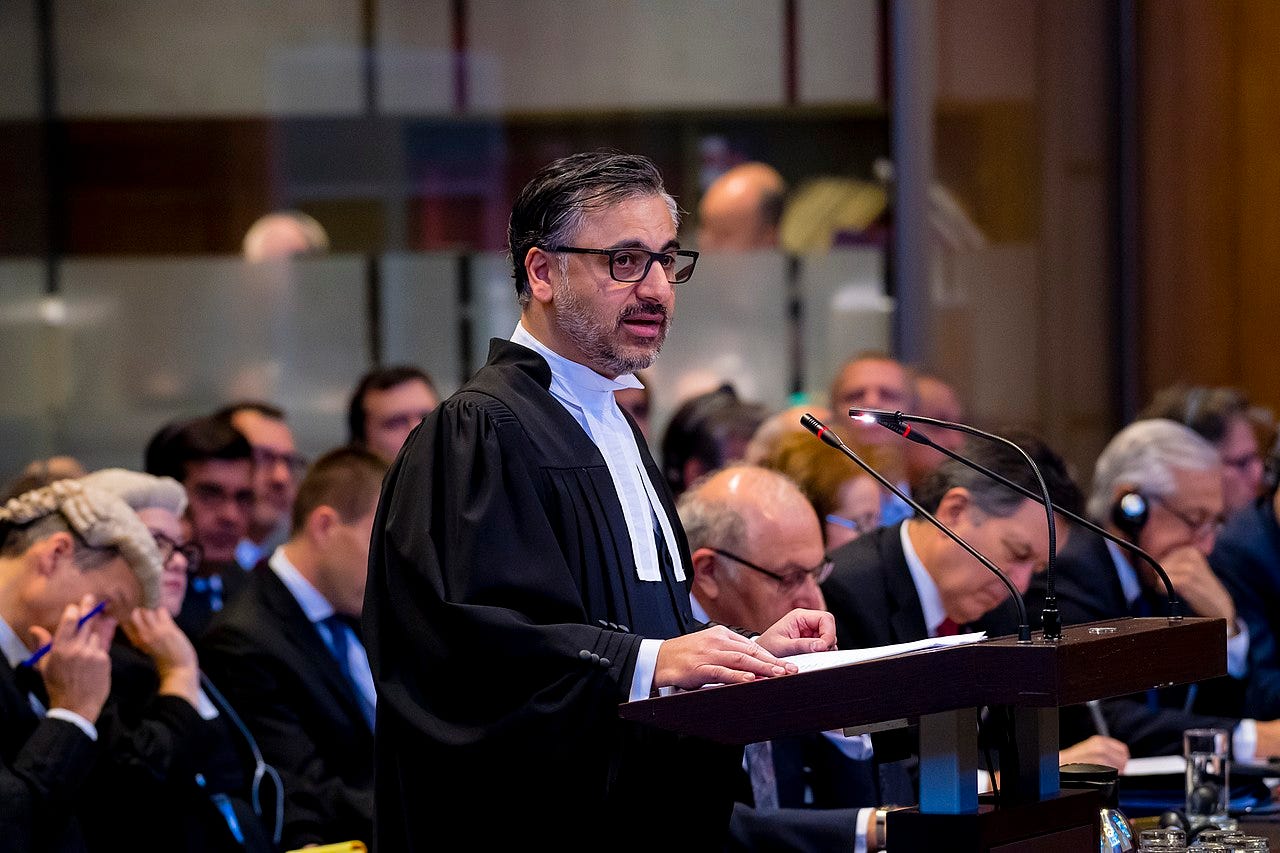

One step we can take is to chose to see the good in someone else and to focus on growing that which is good within ourselves. Interesting note at the end, "Payam’s life has been shaped by the struggle between oppression and hope." I think this is something many can relate to, but for myself I would consider it to be more of a wrestle between nihilism and hope. And I think you can rationalize either within yourself, so ultimately it's a choice. Choosing hope, and choosing to see the good in others, only becomes the convincing path after it is put into action. Makes it kinda tough sometimes lol but I think we are slowly figuring it out. Anyways, loved the convo. Thanks Rainn!
The most enchanting movie that I have ever seen is the 2011 film, "Hugo," in which an intense and mechanically gifted boy manages to repair a mysterious automaton, and in the process, "fixes" at least one other character, a pioneer of motion pictures who has become dispirited and reclusive, while simultaneously bringing many others together in harmony. Hugo believes that "everything has a purpose," that "there are no extra parts" to any mechanism, and, by extension, that everyONE has a purpose, and that there are no unnecessary people. What would happen, I wonder, if each of us could turn from seeking power, fame, possessions, and our other obsessions, and seek instead for our purpose, our place in this wondrous mechanism we call life on planet earth? I believe that all of the creatures with whom we share this earth already have it figured out. They know their purpose. Do we?